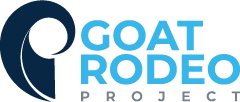The new reality of living with a global pandemic has presented many challenges and opportunities for the modern HR professional.
As a ‘recovering CHRO’, I have been in the fortunate position of being able to live this experience through two different but very complimentary lenses: the best practice perspective gained through studying the plethora of articles from academics, thought leaders and consulting houses; and the real-world perspective through regular connections with CHROs across the world.
Now is the time to reimagine work
Through this insight, I have concluded (along with, I acknowledge, many others) that now is the time to reimagine work. The shared societal experience of the pandemic is creating a fundamental, organic reset of the world of work. While many elements of this reset were already contemplated and underway, the new ‘new world of work’ has been accelerated by as much as ten years.
But as we contemplate how to best embrace this emerging paradigm, there are a number of somewhat counter intuitive trends relating to performance, engagement and wellbeing that make it challenging to identify robust go-forward strategies and interventions.
In May 2020, Gallup reported the highest level of engagement since it started tracking the metric in 2000 with 38% of workers in the US being ‘engaged’.
When it comes to productivity (a proxy for performance), research from UK academics showed a similarly positive response with two-fifths (41%) reporting that they were able to get as much work done in June 2020 as they were six months earlier and over a quarter (29%) stating that they were more productive.
The picture around wellbeing is much less positive with the Conference Board reporting that the mental health of 84% of respondents had worsened during the pandemic.
The story behind the data
We need to recognise its early days, but the correlation between engagement and performance is logical. The data, particularly as it relates to wellbeing, warrants further examination.
Gallup’s hypothesis to explain the increase in engagement is the high unemployment we are experiencing that reduces the size of the survey pool, but also creates a level of precarity where many people are just grateful to still have a job. Think Maslow’s hierarchy of needs!
When it comes to productivity, it is worth noting that much of the published data comes from self-assessed surveys and is anyone really going to admit being less productive? It’s also important to consider what we mean by being productive. Is it producing more reports or sending more emails? Well frankly with lockdown, no commute and fewer distractions it’s not really surprising our productivity has gone up. How much Netflix can one person consume?
Of more concern, the echo pandemic presented by the related wellbeing statistics reflect the heightened level of anxiety many of us are experiencing as we deal with uncertainty alongside the practicalities of home schooling and a lack of social support. Being an optimist, I am hopeful it also represents a genuine shift in our acceptance of this important issue resulting in people being more comfortable sharing how they truly feel.
The forced experiment in flexible working
The shift to remote working is the most tangible response to the COVID workplace and, much to their surprise, the transition has been seamless for many organizations. Let’s not forget that Statistics Canada report that only 40% of the Canadian workforce have the option to work from home, so the shift doesn’t represent the panacea of reimagining work that many believe. It might actually widen the socio-economic gap of haves and have-nots that we were already experiencing.
We have been in a forced experiment where the long-term implications of remote working are still to be fully understood. The lack of connection and the challenge of separating work and home is surely impacting our mental wellbeing. The reduction in cross-departmental collaboration (think water cooler chats) will also impact new creative ideas and have a downstream impact on business performance.
As we shift our focus to living with the pandemic for a significant period of time, it becomes clear that we need to reimagine work. We need to find a way of creating highly engaged and productive people who are thriving.
The dimensions of the emerging paradigm
The emerging paradigm will be purpose-driven and human-centric organizations focused on delivering sustainable value for all stakeholders. This will require organizations to look at their culture, leadership capabilities and talent strategy.
Culture
Many leaders have been surprised how their organizations have shifted seamlessly to working remotely. A few less perhaps have accepted that their traditional views were in fact wrong. People can work from home and be trusted to do the right thing in the unbossed organization. Shifting to a culture that ensures people are empowered to deliver on the purpose of the organization creates the autonomy that creates motivated people as identified by Daniel Pink in his book Drive.
The parallel shift to more human-centric organizations will be based around living the platinum rule – treat people as they expect to be treated. This will build much needed kindness, respect and empathy that will flow out of organizations into the broader society as the expectations of companies to take the lead role increase compensate for a lack of trust in governments and politicians.
Leadership capabilities
Leaders will play the most critical role in bringing the new cultural dimensions to live. Leadership will no longer be hierarchical and based on positional power, rules and control but shift to leaders empowering people and their unique capabilities to deliver on the organization’s purpose. This will require a human set of leadership qualities including empathy, self-awareness and emotional intelligence. The objective will be to create followership that allows the leader to create engaged, high performing and thriving teams.
Organizations will need to evolve their leadership philosophy and ensure their development strategies keep up with the new demands. In 2014, McKinsey identified four common mistakes that if overcome would build better leaders all of which still ring true in the pandemic world:
1. Context (the real strategy of the company) conquers content
2. Not balancing reflection and not enough application
3. Underestimating individual mindsets when changing behaviour
4. Lack of measurement so you can’t identify the impact
Talent strategy
Finally, the talent strategy represents how we leverage the whole human system to deliver our organizational value proposition. To reimagine work we require a more flexible and dynamic employee experience that can be tailored to individual unique circumstances. The employee with aging parents who wants to work part-time without impacting their pension benefits. The working mother who wants to find flexibility to deal with an erratic school timetable and dears the only option is to resign. The generation Z who is just entering the workforce and wants to spend time with people to learn.
To genuinely respond to the shocking racial injustices we home witnessed, organizations need to shift from words to actions that demonstrate that their teams unique needs are being understood and acted upon.
The democratization of work provides also opportunity to have a fresh look at talent. By fully leveraging the gig economy, organizations can broaden their talent pool and access the increasing cadre of workers (people like me!) who looking to balance even more demands on their time and create greater meaning.
Reimagine Work
The stakes are high. If we truly believe the data, we want to maintain engagement and productivity and at the same time shift the unquestionable downward trend in our workforce’s wellbeing.
HR teams across the globe have worked tirelessly to protect the health and safety of their people over the last six months and they need to use this newfound credibility and shift to a longer-term focus where we reimagine work.

